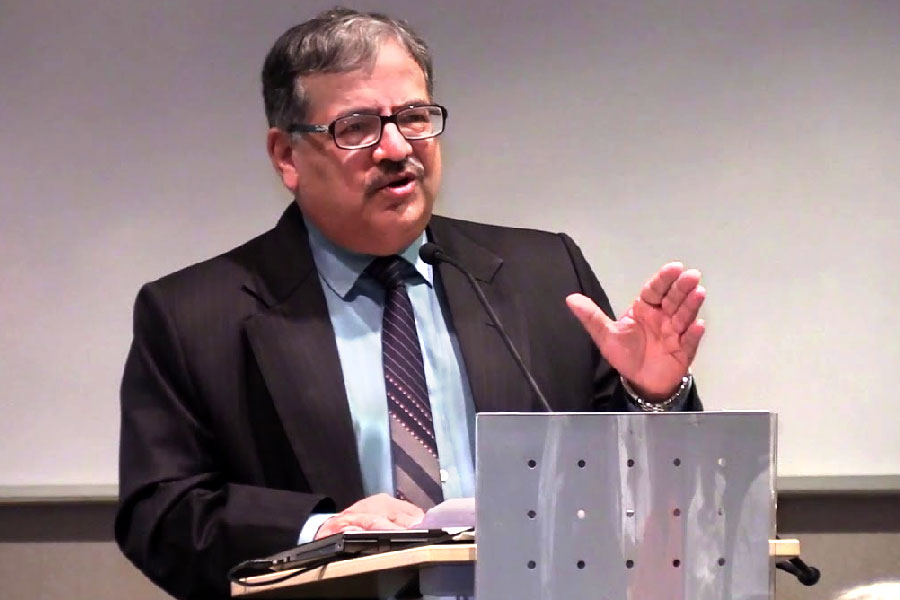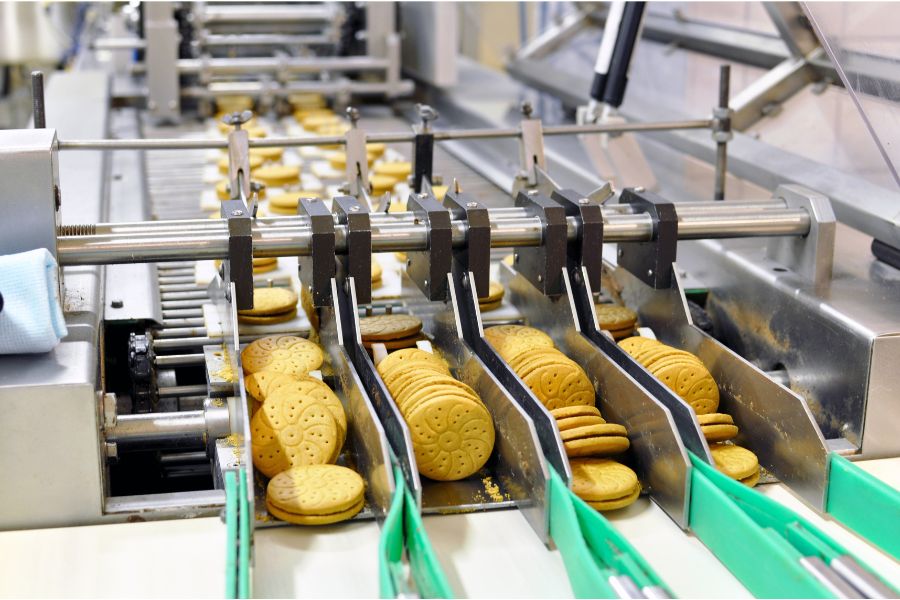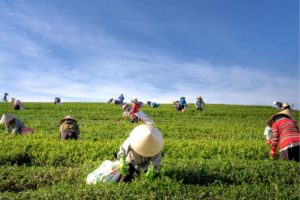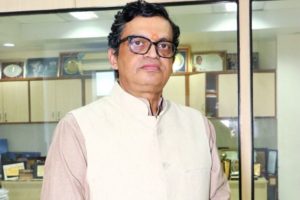Foreign Trade Policy should holistically focus on trade & investment
Prof Manoj Pant, Director, Indian Institute of Foreign Trade, discusses the trends in global trade over the past 5 years and how policymakers should approach the Foreign Trade Policy 2021-26 with India Business & Trade. He also talks about the prospective developments in the multilateral trade agenda under the Trump administration and how India should rethink its global trade agreements.

IBT: What do you feel have been the most transformational changes in the global trade environment, over the duration of India’s current foreign trade policy and which economies have truly outperformed, if you consider manufacturing exports?
Prof Manoj Pant: I don’t think 2015-20 was transformative, in the sense that 2015-20 continued the recession in the global economy, which began after 2008 and has continued. There were some improvements in the earlier years after 2008, because of the high stimulus by China and USA, but that didn’t work too well for the world at large. And I think, 2015-20 have been depressed years for global trade. Manufacturing exports, as a share of world GDP have remained at around 60%. But I would say, that India has done reasonably well in core areas like engineering goods, pharma, and attempts are being made in sectors where we lack like electronics. There are other areas which depend on the world market, like at one point of time, we were a huge earner in gems and jewellery. Now, gems and jewellery is sort of stuck, because the world is in recession.
And on the other hand, we have petroleum products, which are reasonably large net earners among our top exports. If the world demand for petroleum goes down or stays constant, so does the demand for petroleum products. But I would say that in our core areas, we have performed reasonably well, though not as well as countries like China.
On the other hand, India has performed reasonably well in services, even today, we are close to 4% of world trade in IT, which is phenomenal. There’s no doubt world trade is moving more towards services and manufacturing is something more like a beggar thy labour policy. You’re going to export more manufacturing goods only at the expense of someone else. But I don’t think that’s true in services. That’s why, I think, India has done remarkably well, given the very restrictive mood and regulatory conditions in the rest of the world.
IBT: Looking at the fact that we are coming up with a new Foreign Trade Policy, what do you feel are the major challenges we need to address, to make Indian exporters globally competitive?
Prof Manoj Pant: I always say while teaching classes, that it is companies who export, not governments. The government can only incentivize exports, and they can sometimes disincentivise imports, although I think the second one is not a good idea.
As far as the trade policy is concerned, you have got to stop thinking about it as export policy. Trade is two parts or two sides of the coin. So, you’ve got to start figuring out how you want to disincentivize import, because you sometimes have to do, like in the current situation. Then you have to be very careful that these imports are not those, which will affect either the domestic production or exports. In other words, you better be cognizant that you may be giving nominal protection, but the effective protection will go to zero, because you can’t make the product without the import.
There’s no problem if, for five or six years, you can plan to phase out what you think are imports, for which you think you shouldn’t be dependent on the world market. One example of such a policy action is the PLI scheme. Even before the pandemic, the government had started incentivizing domestic production of API or active pharmaceutical ingredients and the most important one is insulin.
India is the diabetes capital of the world. We are major exporters of the products in our generics & pharma export, but if tomorrow insulin supply is cut off and (right or wrong )assuming the other political and security issues, you’re relying on one country i.e., China for supply. That’s like asking someone to supply all your food grains, which I think, is very dangerous.
In fact, in the 1960s IDPL was created for this. So, find out those imports which are critical for domestic production, or for exports, and those that are not, you can incentivize through a time-bound programme of cutting down on imports.
IBT: What can the Foreign Trade Policy do in terms of the two core objectives of lowering transaction costs for exporters and improving the ease of doing business, which I think are the critical areas that are talked about?
Prof Manoj Pant: The government is doing what it can. But the central government only controls trade at the port levels. After that, there’s the carriage of goods from the port to the transport bottlenecks. There are local sales tax and excise and octroi bottlenecks. Now we are moving towards a national policy of movement of trucks and you have Fastags and other quick movements, so hopefully that part will go away.
As far as I think, the Centre has done what it can. It has brought down delays in customs to the minimum, the GST slabs and delays have also gone down. But the government cannot remove your production bottlenecks, those will depend on the states. There are initiatives taken by the central government like giving scores to the states on factors like infrastructure index. So, this is all that the central government can do, i.e., create the conditions in terms of roads and customs, and I believe here, they’ve done a fairly good job. In the last few years, work has really speeded up, especially as far as the national highways are concerned.
Government can only incentivize; it cannot make the world buy. That depends on competitiveness. Industry cannot keep asking for protection, as it’s over two decades since you opened up. And I believe all incentives, even import restrictive incentives or promotion incentives must be time bound, they cannot be open-ended.
There is another element. You don’t have unlimited resources; so you have to focus. The government can look at three or four focus sectors – pharma, machine tools, engineering goods, etc. And then of course, I’m going to mention services and there are certain services, which are particularly good. These focus sectors or what the government calls, champion sectors, must continue, because they will become the focus of incentives like the PLI or the RODTEP to replace MEIS.
IBT: How can the FTP create a better synchronisation between trade and investment, as they are considered mutually dependent or synergistic?
Prof Manoj Pant: First of all, the big misunderstanding, I think, in all policy circles, is that FDI or foreign investment means big firms. That’s not true. Some of the biggest multinational companies are small companies from South Korea, Taiwan, Switzerland, etc. You will be surprised to know that famous Swiss clocks are not made by any big firms. They are made by small household firms.
Secondly, what exactly is foreign investment? When two countries trade, what do they buy? They buy goods or services. Now, what is FDI? Let me first point out, that around 75% or so of world trade transactions, and certainly in the case of manufacturing, or even higher, are not between countries as such, but companies. Inter-firm trade is one of the most dominant forms of trade. Now, these countries and companies are trading with each other to maximise global profits, which is perfectly alright.
When companies trade with each other, with their own suppliers, what are they buying? They are either exporting or importing, but they are bringing another thing on board – technology, or you may say services. So, if you add services to the physical components of goods and services, that is what is equivalent of FDI. So, it is two sides of the same coin, whether you call it exports-imports, or technology trade, or whether you call it FDI.
Take any two countries you want, measure bilateral trade (exports plus imports) on one axis and measure bilateral FDI, on the other axis. There’s a one-to-one relationship between the two. Coefficient and the correlations can be as high as 0.6 to o.7.
Take India. There are only two cases where you don’t have this one-to-one relationship. One is China, and the other is Mauritius. China’s reason is well-known. We don’t allow FDI with China because of security reasons, otherwise we will be flooded with FDI from China. Mauritius is a tax haven; how much can you trade with one country which makes basically sugar and a few other things? Except for these two, and where there are other reasons why financial flows are coming, all the others are guided by this correlation.
So the FTP today cannot look at the issue of trade and investments separately. You can see that every plurilateral or regional trade arrangement, since the last 20 years or so, always has an investment component. There’s no point talking about trade, if you don’t want to discuss investment; because companies trade, countries don’t. The second thing is that, in the context of this, we discuss trade and investment propositions together, because they go together, right?
Now, what is the problem? See, FDI policy is something which is done by one department. And trade policy is something done by another department. These two are within the same ministry but you know, two departments are two independent entities. You can imagine the coordination problems. For many years, we promoted small-scale industries and exports of textiles, which is a good thing. But we never allowed the FDI until only recently. No wonder, you didn’t export, as you didn’t get into global value chains. And these global value chains are where all these multinational companies operate, whether big or small.
You cannot randomly keep saying that the FDI coming to this country is only domestic market seeking. Since you don’t let them do trade, how can they be trade seeking? You can see that’s changing now and I think the game changer for me is what they do in defence. As you know, defence is not a part of WTO, but we have opened up defence to FDI. I believe in the next 10 years, exports for the defence sector will grow. It will also be a large domestic market, if these firms start supplying competitively. But you have to look at trade and investment together.
IBT: India has to replace its traditional schemes like MEIS with RoDTEP. So, besides the compulsion part of it, what is your view on how RoDTEP could help India’s exports? Also, how do you compare it with its predecessor and any other concerns which you have regarding the same?
Prof Manoj Pant: Obviously, it was a matter of time before MEIS was replaced. It is not unexpected that India lost the case at WTO, because you cannot promote exports through subsidies. Secondly, I also think that MEIS is a bad idea, because it’s a pretty clear subsidy. You got the MEIS benefits as long as you are exporting.
RoDTEP, on the other hand, is the refund of duties. And it has become especially important to think about after the GST. Under trade policy, and that’s also unfortunate, you had certain provisions where exports gained. But exports sort of lost out relative to imports in the GST, because many of the duty drawbacks, etc disappeared from trade.
I understand that exports lost, but I don’t think it was such a bad thing. Why should exports be incentivized more than imports? I’ve never understood so far. But RoDTEP is at least something that is related to your activities and it is a very common policy for countries to refund duties, so that you don’t export duties. The principle of RoDTEP is that you pay certain duties and build them into your price structure. That could make you uncompetitive. Therefore that should be refunded to you, because you shouldn’t have to suffer from the taxation regimen in your country, as far as world trade is concerned.
Most other countries do it. For example, in Europe, anyone who exports anything, gets a refund on VAT. Even as a tourist, you can get a refund on the VAT at the airport. The question is – how will they administer it. India has to be very careful that it doesn’t degenerate into a subsidy scheme. Otherwise, again, someone will take you to the WTO. But I certainly think RoDTEP or the refund of duties is a good thing, to avoid the lack of competitiveness that comes to you, because you are forced to build duties into your price structure.
IBT: You said that the last five years were not a good period for global trade. What do you feel now, post-COVID, on how global economy and trade are expected to trend in the coming years? And particularly how would WTO progress, because, obviously again, in the past five years WTO’s functionality has been severely impaired?
Prof Manoj Pant: It is very clear to me from economic theory that the recovery, whenever it happens, will be V-shaped. First of all, recovery is highly correlated with the vaccination as the fear has to go. It’s really nothing that the government could have done. They can help domestically, provide lots of job, give them food etc, which they have done. But you can’t really say we will counter COVID. You didn’t create the COVID virus, then how can you counter it?
Now, as far as the pandemic is concerned, you can see what it revealed to India as well as other countries. It demonstrated that whenever there is a global product involved (here the global product was the pandemic), countries may not want to cooperate, but they’re compelled to.
In fact, if we observe, the first response to COVID for every country was zero duties on all medicines and raise in duties on all hardware. So, India thought they would be great gainers, until someone said that if you don’t give us the vaccine, we will not give you ventilators. And, look what happened. Suddenly, India became a major exporter of ventilators. Today the companies making ventilators are going for the world market, because there are so many. So, you suddenly became competitive, because the world forced you to do so.
So, pharma products and hardware were the big gainers during COVID. And the other sector was agricultural goods. So, one thing you have to do, whether you do any economic activity or not, is to eat? The Indian food sector, because of the dominance of agriculture in the lives of most people, actually was growing quite fast, even during COVID.
Now, as far as this WTO is concerned, COVID is an aberration from the long term perspective. It’s an exogenous thing that no one controls. When the vaccinations happen, it will go by itself and it may never come back. The other factor has been the role of the former US President Donald Trump, which has impacted the WTO since 2013. When Mr. Trump came, he said that he doesn’t believe in WTO.
Donald Trump was a mercantilist. He said very simply that, “If you buy more from me, then I buy from you.” But you cannot apply individual rationality to global trade. He said that he will fix all bilateral trades. So, if I have a deficit with China, let’s fix China. If we have a deficit with India, let’s fix it; not realising that they have a huge surplus on technology, on the other side.
With that in hindsight, it is very important to remember the two priorities, which the current president Joe Biden has expressed. One is to return to the Paris accord, as far as global climate change is concerned. He’s going to get it back and we’re going to have to be very careful about that. And Europe is heavily into environment protection. Environmental concerns dominate all their agreements. Biden functions as a Democrat while Trump functioned as a businessman.
The second thing is that Biden has decided that he wants multilateral frameworks, so stop thinking about bilateral trade agreements or any kind of agreement. US is not interested. He will work through the WTO, because it is less of an effort for him. So, let’s get back to figuring out, where we were going wrong, in the WTO. And, I believe the one place where they will start off is where WTO sort of broke off in 2013, when Trump took over.
But just before he took over, the place where they will start is when developed countries say that there has been too much of this ‘only developing countries’ rhetoric. Your poor are dying, we didn’t make the poor die. Your farmers are dying, we didn’t do it. We’re not concerned about the fact that the potato grower in, let’s say Idaho, in US is facing a bad situation. That’s his problem, right? So, they may now say, why should we care?
The Doha agenda is not something you’re going to easily get by. You cannot say anymore that if there’s a development concern, then it trumps everything else. Economics is the number one concern on everyone’s mind, because the world is under stress conditions and domestic protection is also on everyone’s mind, which is typically true of all recessions. It happened in the 30’s, its happening now. So, get ready for this. One of the things, they want to discuss is how do we go on with the agricultural agreement. Can we keep getting the peace clause?
One thing India has to be very careful about. When we talk about agriculture being the most sensitive sector, are we settling for no change? They’re doing the peace clauses since about the 1990s. Peace was blanket return for which no country retaliated in agriculture. That’s not going to happen. So, we have to try to see whether we can get our house in order. Already the special & differential treatment, which is the standard from the Tokyo round, has become one where there is graded special differential treatment. In Cancun and other rounds, they have started saying that there are two classes of developing countries – least developed and the not so developed.
And one thing that Trump did, legally by the way, was removing the GSP status. But why should you get it? The logic of GSP, which was there long back, in the 70s, was that you got the GSP status, as long as your per capita was under US$ 1,000. Now, we are ourselves saying that our per capita income is over US$ 2,000, then how can we get it? So, the GSP is a discretionary thing. It is not a right that we have by WTO. So, get ready for negotiating. How do I retain this? The second issue is environment. Get ready for negotiation regarding the environment. You can’t get out of it.
Secondly, I believe there will be a WTO focus on environment. This pandemic has really proved it. It has shown what can happen and seeing the recent glacial break in India in the Himalayas, you are all the more convinced that it cannot be ignored.
Whatever the anti-climate people may say, the fact remains that every single prediction on the environment has come true. Every single one. Weather changes, what’s going to happen to oasis islands, what will happen to weather in India, extreme weather in every part of the globe; all that has happened.
So, don’t ignore it too much. I believe Biden is very serious about it. And let me mention one last thing. One of the things which was the cornerstone of Obama, was lost afterwards. But believe me, Biden and Obama’s Democrat agendas are not very different. It doesn’t matter what anyone thinks. And one of his agendas was trade agreements – the plurilateral ones, like TPP and TTIP. I believe he will revive them. He has immediately joined NATO, i.e. back to Europe. He immediately joined the Paris convention – back to climate negotiations. I believe he’s going to start talking about TTIP and TPP.
And I’m glad India remained away from RCEP. Why the hell were we getting so excited about RCEP?People were like, ‘Oh, my God, we will be dead’! I say why will you die? These guys are more engaged in fighting among themselves politically, rather than trading! It’s only the Southeast Asian countries, which are very happy, but they’ve been trading with China anyway. If we simply remove India, they’re always already there.
So India should start thinking in terms of trade negotiations with the countries that matter. Maybe ASEAN nations are important politically, but trade-wise, they’re not so significant. Less than 10% of trade is with these countries. So, start thinking about Europe, because US will not interested. I can tell you that Biden does not have the slightest bit of interest in any bilateral dealing, be it India or any other country. But UK (which recently signed a £ 1 billion trade and investment deal with India) has to think about something with the Brexit and so does EU.
The bottom-line is that all trade negotiations, weather plurilateral or multilateral, must talk more about economics and less about politics. The Cold War is over. Everyone wants their economics and compulsions. I believe the government is looking into these agreements and I think this is the right way to go.
Prof Manoj Pant is an Indian expert in International Trade. He is the Director of Indian Institute of Foreign Trade, since August 2017. Previously, he was a full-time professor at the Centre for International Trade and Development, Jawaharlal Nehru University, where he taught international trade theory. Views expressed are personal.













Leave a comment